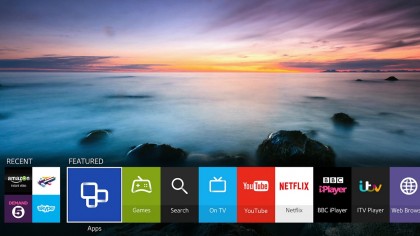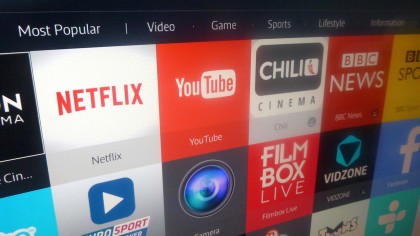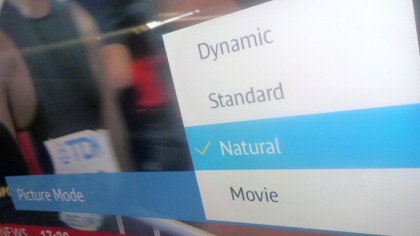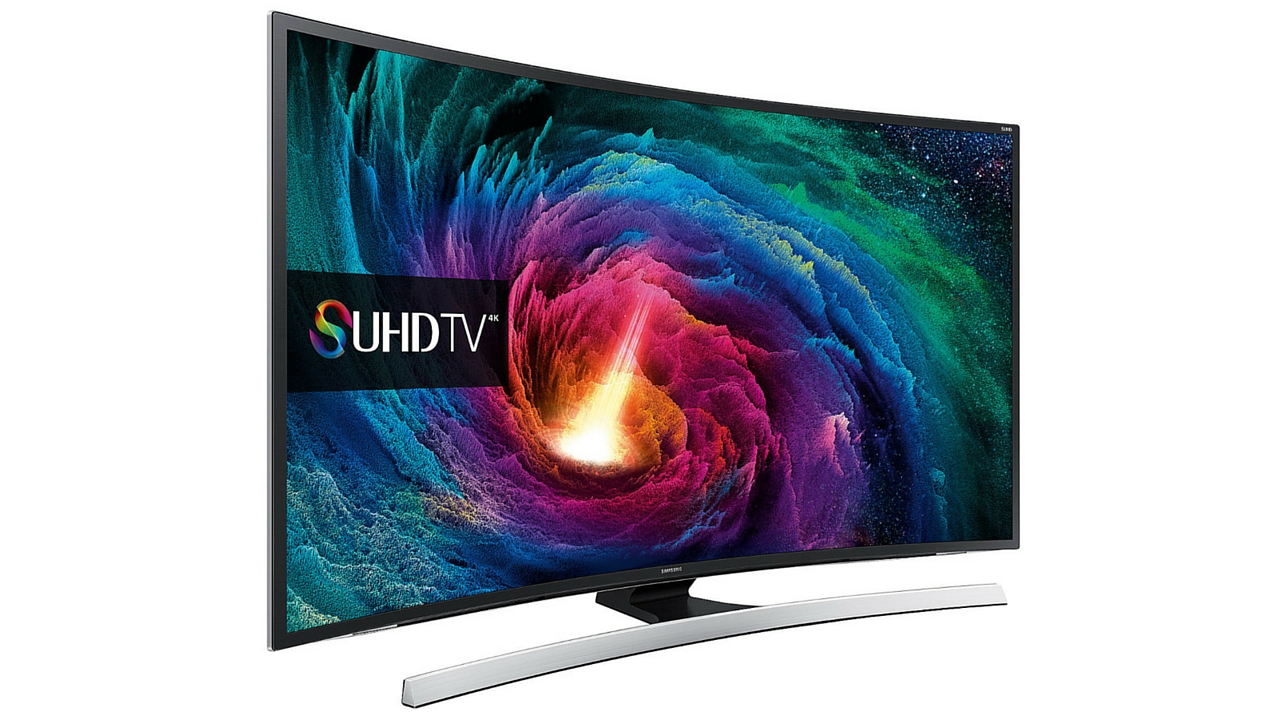Why you can trust TechRadar
An Edge LED-backlit TV with a native 10-bit LCD panel rated at 120Hz and an Ultra HD 4K resolution, the UE48JS8500 is – thanks to its quantum dot nano-crystal layers – nevertheless all about colour.
That excellent colour performance is boosted in no small part by brightness, which the UE48JS8500 has in spades thanks to its native energy-harvesting tech, Peak Illuminator.
An episode of Marco Polo from Netflix 4K is treated with incredible subtly, with Kubla Khan's stately pleasure-dome featuring carefully blended colour that shape-shifts in real-time, creating an image of immense realism.
The gloomy areas of the palace are left an enticing jet-black, but Polo's dark coat suffers from black crush, with little detail within. It's the same story with black suits in a showreel from Amazon Instant 4K, which all suffer from the same trade-off. In this regard, the UE48JS8500 proves that the SUHD concept is good, but it's no OLED.

Is a 48-inch TV big enough to tease-out enough 4K detail to make streaming in 4K worthwhile? Actually, yes it is – the image is near immaculate with bags of detail and impressive depth, which is more than you can say for a Full HD image on a TV of this size.
It's worth subduing the backlight by half for movies, to around 10 (only the Movie preset, at 13, gets anywhere near taking the backlight off maximum), for which the reward is superb contrast and excellent local dimming.
That takes the eye-popping edge from colour, but it's definitely worth doing. As Marco Polo rides out into the desert, the big sky is pure white, and though it dominates the image, the dark silhouette of a tree remains profoundly black.

As an Edge LED-backlit LCD, the UE48JS8500 doesn't have any native local dimming, instead using digital trickery to create Smart LED. However, it works pretty well, mostly getting rid of patchiness when used on the highest setting to create a panel of mostly consistent brightness.
Mostly…when the city lights go out in a 4K clip of Chicago at night, the UE48JS8500 doesn't go completely and utterly black, as OLED TVs do. I noticed a few patches of brightness, and a touch of haloing around brightly-lit white text when set against a black background. But this is nit-picking in the extreme.
Moving down the scale to Gravity on 2D Blu-ray, the UE48JS8500 retains that highly detailed, consistently bright and awesomely coloured image, and matches it with a judder-free performance.

Okay, so there's still some crushing in dark areas of the image, but the blackness of space remains profound and camera pans are smooth. Things do get a tad frenetic when the satellite debris hits the Space Shuttle, and in sequence like this it's wise to engage Auto Motion Plus to reduce motion blur. It's best kept on its 'standard' setting to avoid any artefacts creeping in.
Get to broadcast HD channels and the good work continues, with images from the World Athletic Championships from Beijing on BBC One HD containing far more detail than I had expected. Even the standard definition broadcast, while very soft, is plenty clean enough to watch.
Current page: Picture quality
Prev Page Introduction and features Next Page Usability, sound and valueJamie is a freelance tech, travel and space journalist based in the UK. He’s been writing regularly for Techradar since it was launched in 2008 and also writes regularly for Forbes, The Telegraph, the South China Morning Post, Sky & Telescope and the Sky At Night magazine as well as other Future titles T3, Digital Camera World, All About Space and Space.com. He also edits two of his own websites, TravGear.com and WhenIsTheNextEclipse.com that reflect his obsession with travel gear and solar eclipse travel. He is the author of A Stargazing Program For Beginners (Springer, 2015),

